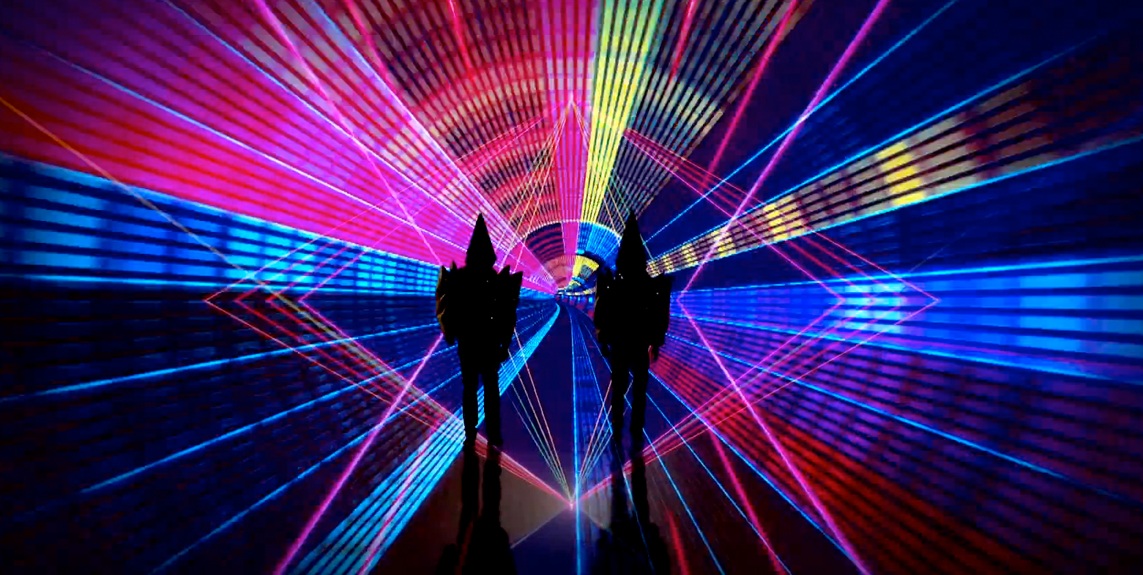
December 14, 2013, by Stephen Mumford
Disco Potential
A year or more ago someone remarked that they didn’t know what musical universe I inhabited, given that I’d expressed a diverse range of likes. It’s true; I like all sorts. The genre doesn’t matter as long as it’s good. But in my youth, there was one kind of music I just couldn’t appreciate: disco. Growing up in the 70s, there was plenty of it about and none of it seemed very deep to a thoughtful child like me. Frivolous and asinine with their barely existent melodies, lyrics about simply having a good time, and all musicality sacrificed to a continuous beat, I saw no artistic potential in these songs. It was pointless and stupid.
Then there was Giorgio Moroder. The Sunday afternoon radio chart show boomed out the electronic, digital and mechanical rhythm of Donna Summer’s ‘I Feel Love’ in 1977 and it seemed to go right into the centre of my cerebellum. The computer ensured perfect timing as the connection music has always had with bodily movement now became its very raison d’être. A similar relentless bassline ran through ‘Beat the Clock’ by Sparks, which in 1979 became the first disco record I ever bought. It sat oddly alongside the punk and new wave seven-inches gathering in my teenage bedroom. I didn’t know for a while that the Sparks and Donna Summer hits were produced by the same man, Giorgio Moroder, a pioneer of the form. Electronic disco seemed something new altogether, synthesisers paradoxically tapping into the body’s primitive need for rhythm more than guitars and drums had so far managed.
Into the mid-Eighties and electronic disco had remained little more than a personal dalliance. A synth duo had hit the scene that initially got under my skin. Pet Shop Boys’ first hit ‘West End Girls’ was a bit of an unwelcome earworm. I didn’t want to like it but, once heard, it couldn’t be unheard. And the next year I couldn’t believe the audacity of their disco-stomping ‘It’s a Sin’, with its lyric of Catholic guilt and an ambiguous subtext, surely about a secret sexuality. This was catchy dance music and at the same time intelligent and literary, destroying all my preconceptions about what disco music could be.
I held out as long as I could while Pet Shop Boys went through their imperious phase, producing number one hit after hit. But my resistance was finally broken when someone at a party put on their new Introspective album. Strings and opera gave way to the biggest whomping bassline before Neil Tennant’s understated vocal added a commentary on the vacuity of life in Thatcher’s Britain: living alone, picking up a book, fixing food, while Che Guevara takes to the stage in a secret life. The track was ‘Left to My Own Devices’, the full 8 minutes 16” version, and I simply couldn’t believe that this disco/existentialist/operatic fusion was real.
I went out and bought my first CD player and Introspective was the first thing I played on it. The sound was too big for analogue. Pet Shop Boys were the first band of the digital age, in my book, producing a music that positively could not be encumbered by any slight crackle from the needle on the vinyl. Computers produced it and computers had to play it.
I backed a winner. Their contemporaries gradually faded into the background, but PSB continued through the Nineties, Noughties, and now Teenies, always using the latest producers to keep pace with the developing sub-genres of electronic music. Neil Tennant and Chris Lowe have now written far more songs than Lennon and McCartney and they continue to surprise me. The latest album Electric opens with ‘Axis’, which again had me reeling at their daring, this time by harking back to the early 80s origins of the art of disco.
Disco music can and sometimes should be light-hearted. It gives us a good feeling and a good dance. But it’s a long time since I doubted its artistic credentials. Dance music is often skilfully crafted, beautiful and intelligently presented. At its best, the beat taps into something primordial and undeniable within us. I’ll always be grateful to Pet Shop Boys for opening my mind to these possibilities.

Footnote: Maybe it’s too sentimental for me to say but I’ve already chosen Pet Shop Boys’ ‘Here’ from the album Release as my funeral music.
It’s a sin. Bohemian Rhapsody. Lola. Then tea and madeleines.